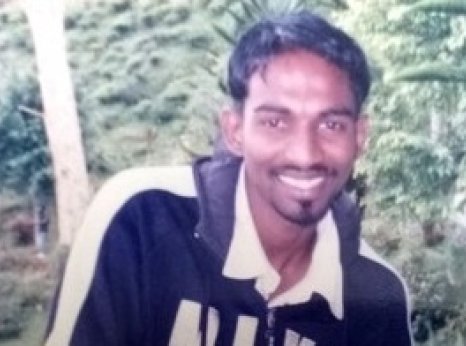Singapore: Singapore Sets Execution Of Malaysian Man

Pannir Selvam Pranthaman is a talented musician from Malaysia who, while on death row in Singapore, has written poems and songs, including some that have resulted in collaborations with other Malaysian artists.
He was convicted on 2 May 2017, aged 29, of importing into Singapore 51.84g of diamorphine (heroin) and sentenced to the mandatory death penalty. The Court of Appeal rejected his ordinary appeal on 18 October 2018. The judge found Pannir Selvam Pranthaman to have been involved only in the transport of drugs, meeting the “courier” requirement under the law. However, the prosecution did not provide him with a certificate of substantive assistance, leaving no option to the judge but to impose the mandatory death penalty.
Following amendments to the Misuse of Drugs Act in 2013, judges in Singapore have a limited sentencing discretion in two scenarios: first, where a person is found to have a mental or intellectual disability that substantially impaired their mental responsibility for their acts and omissions in relation to the offence, or second, where a person is found to be a “courier” and the prosecution issues a certificate of substantive assistance. Without the certificate of substantive assistance, the court was deprived of any discretionary powers when sentencing Pannir Selvam Pranthaman, as the decision shifted in practice to the prosecution. This violated his right to a fair trial, as it effectively placed the decision between a life-or-death sentence in the hands of an official who is not a neutral party in the trial and should not have such powers; it undermined the independence of the judiciary, breaking down the separation that must exist between prosecution and court; and violated the principle of “equality of arms,” namely the equal powers of prosecution and defence before the courts.
Pannir Selvam Pranthaman’s conviction relied on the legal presumption of knowledge of the drugs. The Misuse of Drugs Act allows legal presumptions to be used by the prosecution where the burden of proof is shifted onto the defendant to be rebutted to the legal standard of “on a balance of probabilities”. Presumptions of guilt effectively lower the threshold of evidence needed to secure a conviction in capital cases, undermine fair trial guarantees under international human rights law and violate the right to be presumed innocent, a peremptory norm of customary international law.
Pannir Selvam Pranthaman had his execution previously set for 24 May 2019. It was halted one day before it was due to be carried out, after the Court of Appeal allowed for the consideration of extraordinary appeals. Further legal appeals involving Pannir Selvam Pranthaman were recently considered and rejected, and he is now believed to be at risk of having his execution notice issued once again. On 16 February 2025 the Singapore authorities notified Pannir Selvam Pranthaman and his family that his execution would be carried out four days later, on 20 February.
International law and standards prohibit the imposition of the mandatory death penalty, as it denies the possibility of taking into account the circumstances in the case. Moreover, international law and standards require that the imposition of the death penalty be restricted to the “most serious crimes” involving intentional killing.
Amnesty International opposes the death penalty in all cases without exception. As of today, 113 countries have abolished the death penalty for all crimes and 144 are abolitionist in law or practice. Singapore remains one of a small group of countries that still carry out executions, and an even smaller group that apply the death penalty for drug related offences.